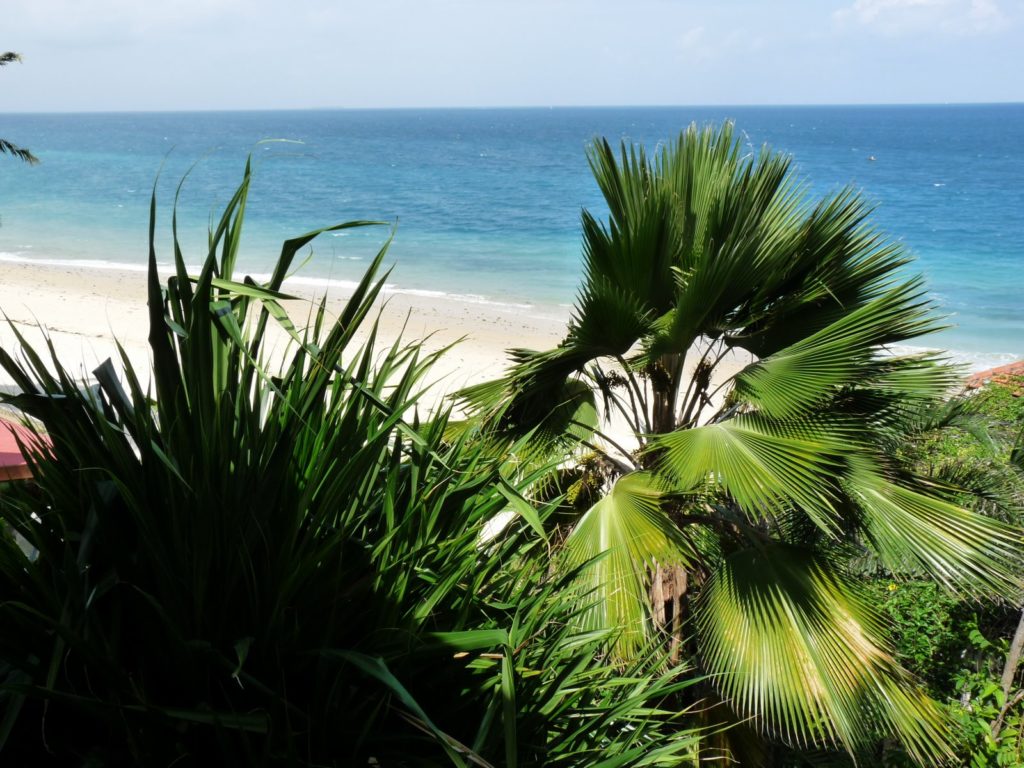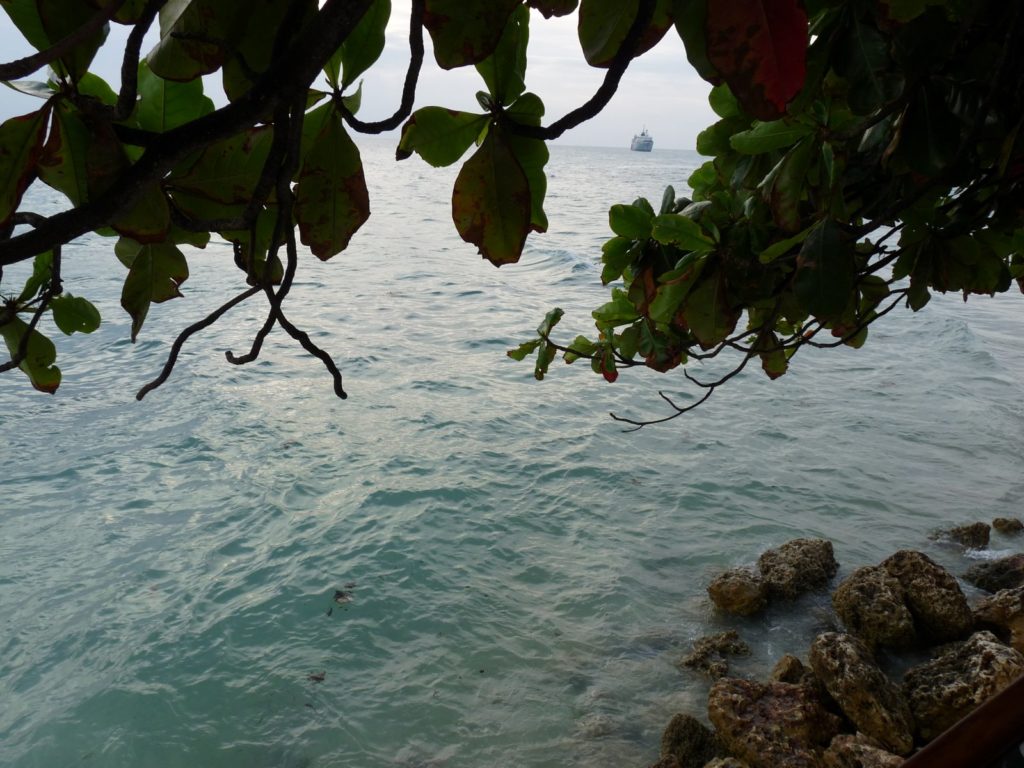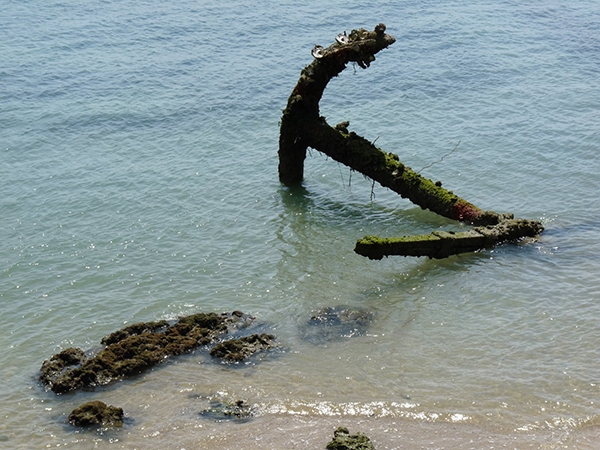Losing Ground
“Residents of Saint-Apollinaire, Quebec, voted against a proposed Muslim-run cemetery in their town Sunday … The final tally showed 19 votes were against the project, 16 votes in favour and one rejected ballot. Mohamed Kesri, who was overseeing the Muslim-run cemetery project, said …[1]”
I put my coffee down and hit the off switch. I couldn’t listen to his pain. I could already feel it filling my heart and overflowing into my body, pushing its way out, to wash away me, my childhood, and my future.
It was a familiar wave of pain. I first felt it driving along the sea in Dar es Salaam. I had begged my mother to travel there with me to show me the place where her childhood stories were set. Her stories were weathered beach stones I had repeatedly tried to piece together, unable to complete the puzzle without feeling the curves and cavities of the home that shaped her.
She had stayed away from that home since leaving at age eighteen to explore other worlds, first London, England for two years of postsecondary education, then Nairobi to work as a flight attendant for East African Airways, where she spent months based in India, and travelled to Japan, Italy, Rwanda, Hong Kong, and more. She met my father, who worked for the same airline, and settled with him in Nairobi, where my brothers and I were born and lived for a few years before we migrated to Toronto.
In all that time, she never made the trip home to Dar es Salaam, save for one funeral.
I could never reconcile her nostalgic stories of picking tropical fruit in her backyard and boat trips to family weddings along the Indian Ocean coast with the lack of longing she expressed to return. Living in Toronto, eighty percent of my body was filled with longing—fifty percent yearning to go back to Kenya, twenty percent to Tanzania, and ten percent to India, where my great-grandparents were born.
I had to act to fulfill that longing.
At first, my mother resisted my pleas for her to travel with me to Dar es Salaam. She eventually surrendered, and I sighed. Months later we were on our way. The moment I stepped off the plane onto the tarmac, the feeling of being at home hit me with a thud. It was as if a magnet buried deep in the earth was pulling me in. My body felt made for the precise weight of the air that released the tension in my neck and shoulders, and flowed into my lungs in the deep breaths I took to drink it in. I could feel my grandparents and great-grandparents welcoming me home and holding me in a warm embrace.
My usual shyness with strangers melted away. I approached a man I didn’t know outside the arrivals area, “Can we borrow your cellphone to let our ride know we’re here?” I knew he would say Yes. Family friends soon arrived to drive us to their home, steps away from the home my mother had grown up in. On the drive, I rolled down my window as far as I could, letting the air flow in, turning my head from side to side, my eyes wide open, scanning the landscape, trying to imagine my mother walking, here, among the people filling the streets.

We took the scenic route along Sea View Road, curving along the wide, white, sandy coastline that meets the lapping waves of the turquoise sea. The beaches were quiet, with tall palm trees dancing in the breeze, heavy with coconuts full of cool, sweet liquid, just right for quenching saltwater thirst. Dhows, rowboats, sailboats, and ships shared the water, crossing paths, equally determined to sail towards their destinations.
Street vendors were selling calamari and prawns on skewers. I saw where my mother’s love of seafood began.
My mother’s stories rushed to memory’s shore, the sea breeze blowing through our hair as we breathed the salty air. She pointed to our left, “That’s where my father was buried.” I stiffened. My grandfather died when she was ten, so I had never met him, though I felt his presence in my mother’s silences, and in the stories that she couldn’t tell.
When we came together with her side of the family, we all tried to find our places around the chalk outline of his body, adjusting, and readjusting our positions to get the most balanced composition possible, without erasing him.
It felt impossible for me to find my place. I couldn’t sharpen his hazy outline, couldn’t bring it into focus, no matter how I tried.

When I asked my mother questions about her father, to try to lightly shade in his outline, bring it back to three-dimensions, she said, “I was too young. I don’t remember.” It was as if her heart had been forced to grow around the hole he’d left when he died, like a plant that bends itself around obstacles to grow towards the light. I pictured the warehouse filled with unfinished furniture that her family discovered after my grandfather died, each piece representing a part of himself that he gave each of his ten children, for them to take into their homes, continue to craft throughout their lives, and pass on to their children and grandchildren.
When I looked to my left, my sorrow for our loss was quelled by a sense of peace. “It’s so nice that he’s buried overlooking the sea. We should visit his grave.” I was sure that would strengthen the frayed thread connecting me to him.
“Oh, he’s not there anymore,” my mother replied matter-of-factly, as if talking about a neighbour who had moved.
Confused by her response, I was about to say, “Well Mum, I know he’s dead …” when she spoke. Her voice was flat, as if reading from a newspaper.
“His body was exhumed from his grave and thrown into a mass grave with the thousands of other bodies from the cemetery.”

I felt like someone had punched me in my heart. I could feel the fist there, painfully pushing my blood out and choking me. I couldn’t breathe. I fought to get words out. I felt like I lost the grandfather I had never met, the frayed thread connecting us abruptly snapping, and him disappearing into the endless sky. “Why?!” I asked, as I tried to grasp the thread one more time, stretching my arm as far as I could.
She sounded numb. “The government wanted the land for commercial use.” I didn’t understand. The land was prime ocean-view property, but there were no buildings there now. Not one.
My mother must have buried her pain so deep, with her grief over losing her father so young, that only being in the place where he died could exhume her memories. “It’s hard for the living,” she said. “I don’t even know where he is.”
I never need to ask my mother again why she left her first home, so young, and could not go back until I begged her to go with me. I had never thought about her leaving her lost father there, in a mass grave, buried deep in the ground, a gravitational pull on her heart that no compass could find.
Now I worry about our lives, here in Canada, not only that we can never feel grounded while we’re alive, but that we won’t even be given ground to enable us to rest in peace after we die.
Bio: Farah N. Mawani’s creative nonfiction and personal essays have been published in Room, TVO Shared Values, Embassy, The Mark, The Star (Kenya), as well as by Huffington Post and Intent. She is writing a memoir, Held, with support from Canada Council for the Arts. Connect with Farah on Twitter, at @farah_way, or via email, at farah@farahwayglobal.com.
[1] Enos, Elysha. 2017. 19 voters quash Muslim-run cemetery in Saint-Apollinaire, Quebec. CBC News. July 16, 8pm ET.
Read more

